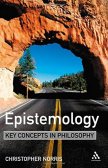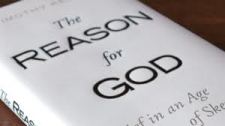Book Discussion of Christopher Norris’ “Epistemology: Key Concepts in Philosophy”
Chapter 3: ‘Fog Over Channel, Continent Isolated’: Epistemology in the ‘Two Traditions’ – Section IV.
Part 1: Bachelard.
The shifting pattern of response is not “restricted to the work of German philosophers and critical theorists.” French philosophers to be discussed are Gaston Bachelard and Jacques Derrida (influenced by Bachelard), both of whom cut across the traditional divide. Discussion of Derrida will begin in Part II and continues as well in Section V.
Gaston Bachelard cut across the analytic/continental divide, adopting a critical-rationalist approach “which lays chief stress on the capacity of scientific thought to achieve advances in knowledge through the critique of naïve (commonsense) ideas and also of certain a priori intuitions and concepts to the extent that these have proved an obstacle to progress.” He was influenced by “mathematician and physicist Henri Poincare who considered such counter-intuitive developments as non-Euclidian geometry to have placed sharp limits on the role of a priori reasoning in science.” Bachelard’s approach can be considered ‘continental’ “in so far as it takes a detailed account of the genesis of scientific theories or the kinds of thought-process that are typically involved in the production of scientific knowledge. To that extent it stands within the rationalist traditions, descending from Descartes, which conceives knowledge as involving possession of ‘clear and distinct ideas’ arrived at through properly disciplined exercise of a priori reason. However, it also marks a break with that tradition by insisting that such clarity can only be attained through the constant critique of supposedly self-evident truths.” He retains an interest in the processes of thought through which scientific revolutions occur when received ways of thought are challenged. His study of paradigm-change throughout scientific history differs from Kuhn, because Bachelard recognizes scientific progress can be justified by improved description, prediction and explanation of empirical phenomena-so the continental tradition provides “strong grounds for resisting the cultural-relativist drift that has characterized some developments in post 1970 Anglophone thinking.” Bachelard can be contrasted against Kuhn’s paradigm-relativism/worlds, and Quine’s ontological schemes. Rather than an “outright rejection of that subject-centered or foundationalist epistemology” as displayed in the thought of Lyotard, Heidegger-influenced hermeneutic theorists, the Wittgensteinian ‘linguistic turn’-Bachelard’s thinking combines “a qualified acceptance of certain Cartesian precepts with a full recognition of the various ways in which it can be led into error through over-reliance on the witness of a priori intuitions and concepts.” This is why he concurs with Husserl about the need to account for both the ‘genesis’ and ‘structure’ of enquiry (I guess he considered both to be in the ‘context of discovery’).
His study of analogy and metaphor can be misunderstood to “promote a Nietzschean view of science-or of ‘truth’ in general-as nothing more than a host of sublimated metaphors and images whose origin has now been forgotten and which thus manage to pass themselves off as veridical concepts.” But Bachelard “insists on a process of ‘rectification and critique'” whereby the role of metaphor is left behind, transcended, and the theory becomes histoire sanctionée (Black’s caloric theory of heat giving way to ‘specific heat’; ether giving way to the electromagnetic field defined by Maxwell’s equations) [“the history of ‘sanctioned’ (knowledge-conducive) hypotheses]. That or the model becomes inadequate and relegated to histoire perimée (like the tetrahedral image of the carbon atom, or phlogiston) [the history of lapsed (referentially void) hypotheses]. “These particular examples have been worked out in detail by philosophers of science whose agenda is set by problems and concerns within the broadly ‘analytic’ tradition. Yet the fact that they converge so strikingly with Bachelard’s epistemo-critical approach” is evidence of cutting across “parochial or academic lines of demarcation”.
So, histoire sanctionée (sanctioned history) deals with ‘context of justification’ whereas histoire perimée (lapsed history) can be dealt with sociologically when considering ‘context of discovery’. Why theories in the latter category ‘lapsed’, is because they did not meet the standards of “empirical testing, the framing of apt hypotheses, inference to the best explanation, etc.” required of theories in the first category. Bachelard sought to combine these categories-perhaps the way I combined them in my commentary in the last section-that when we believe what is true, and when we use such methods which arrive at truth, then the two categories (a: truth which is true even if we don’t know it, b: what we know and how we know it) come together. But Bachelard considered both genesis and structure to be dealt with in the ‘context of discovery’
The following is corrected and updated in my “starting point” thread.
So perhaps it would be better to put it this way:
1. Certain, mind-independent truth (ontology) histoire sanctionée (sanctioned history) ‘context of justification’
2. Uncertain knowledge, belief (epistemology) ‘context of discovery’
–Genesis: “process of reasoning by which such truths are arrived at”-“the genesis of theories or the history of scientific thought”—Structure: “‘absolute ideal objectivity’ that distinguishes the truths of mathematics or logic”-truth, knowledge, epistemic warranthistoire perimée (lapsed history) – applies to those theories which don’t pass muster
[When we come to believe what is true, then 1 and 2 come together (except for that which lapses). All we need to bring 1 and 2 together is a standard for distinguishing true from false-and minds who use the standard. The only being who doesn’t need to “use” the standard is an omniscient being, who does not “come to believe”-but eternally knows.]
Personal note: It makes sense that since all of our knowledge is theory (as we are not omniscient and are incapable of certainty) that we consider genesis and structure not to be separate from eachother-the genesis is really the genesis of structure.
*****
Tiny problem: sanctioned history is defined as knowledge-conducive ‘hypotheses’ — but God (the omniscient) does not need hypotheses.
Either a) put sanctioned history down in “epistemology”, or b) don’t refer to them as ‘hypotheses’ anymore, since they’ve “transcended the metaphor”.
*****
Important distinction to make that I don’t think I made ‘very’ obvious (prob’ly ’cause the focus is supposed to be on how the traditions are not ‘quite’ so distinct):
The analytic trandition typically only wants to focus on “structure” (ditching “genesis” when it ditched the self’s involvement in enquiry), whereas the continental tradition also considers “genesis” important (helpful in explaining advances/progress). Could be wrong in parts/whole.









